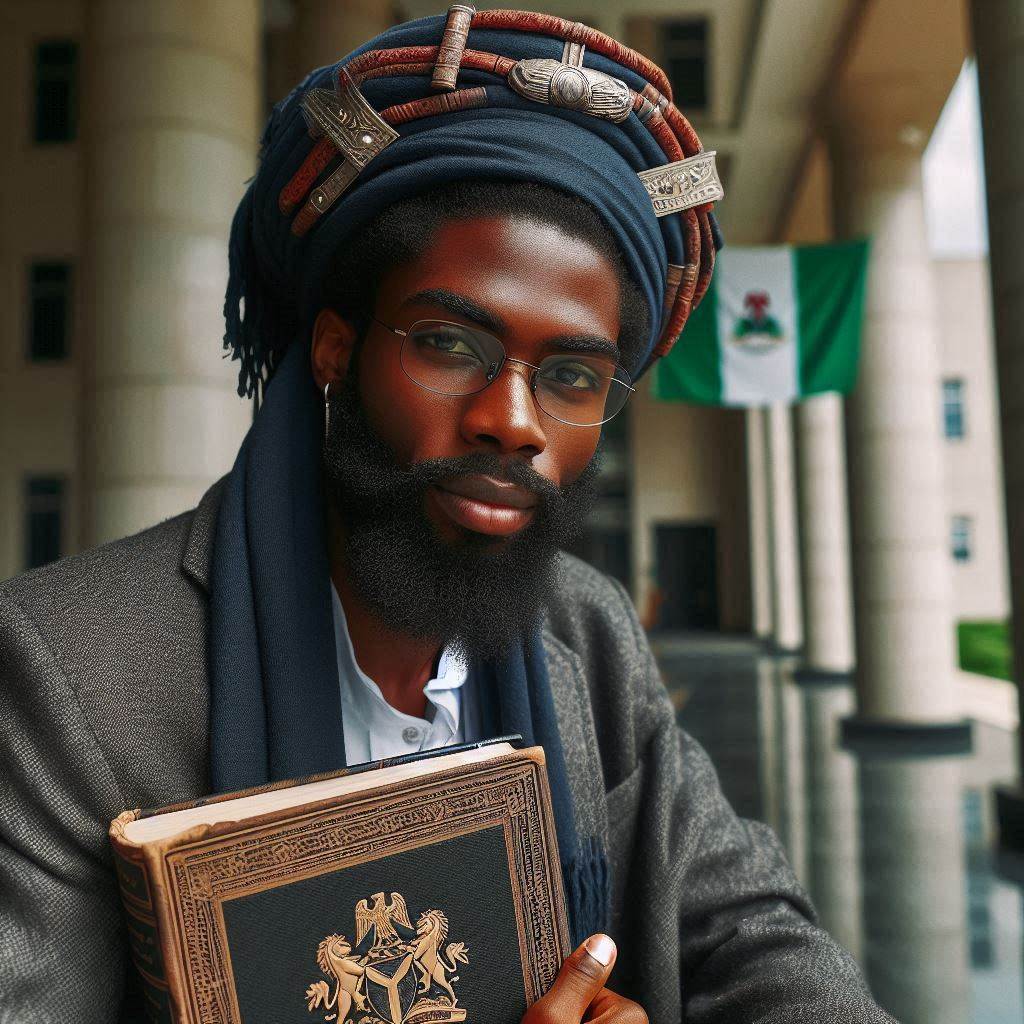Introduction
Literary genres and movements shape cultures, offering windows into societies’ values and perspectives. Understanding them enriches global literary appreciation.
Definition of Literary Genres and Movements
Genres categorize literature based on shared characteristics like form, content, or style. Movements denote collective shifts in literary expression.
Importance of Understanding Foreign Literary Genres and Movements
Exploring foreign genres fosters empathy, transcending cultural barriers, and broadening perspectives. It encourages appreciation for diverse storytelling traditions worldwide.
Brief Overview
Understanding foreign literary genres and movements expands literary horizons. It invites exploration beyond familiar narratives, encouraging cross-cultural dialogue.
Diverse Literary Traditions Around the World
From Japanese Haiku to Latin American Magical Realism, the world boasts myriad literary traditions. Each offers unique insights into human experiences and cultural landscapes.
Exploration of Major Literary Genres
- Poetry: A form of literary art in which language is used for its aesthetic qualities.
- Example: ‘The Waste Land’ by T.S. Eliot
- Drama: A genre of literature intended to be performed by actors on a stage.
- Example: ‘Romeo and Juliet’ by William Shakespeare
- Fiction: Imaginative works of prose that tell a story created from the author’s imagination.
- Example: ‘1984’ by George Orwell
- Non-fiction: Prose writing that is based on facts, real events, and real people.
- Example: ‘The Diary of Anne Frank’ by Anne Frank
Comparative analysis of how these genres manifest in different cultures
Literary genres can vary greatly across different cultures, reflecting the unique values, traditions, and beliefs of each society.
For example, while Western literature may emphasize individualism and personal growth, Eastern literature often focuses on community and interconnectedness. This cultural diversity is evident in the themes, motifs, and narrative structures of each genre.
The evolution of literary genres over time
Over time, literary genres have evolved and adapted to reflect the changing social, political, and cultural landscapes of different eras.
For instance, the romanticism of the 18th and 19th centuries gave way to the realism of the 19th and 20th centuries, which in turn paved the way for modernism and postmodernism.
These shifts in literary styles mirror broader cultural movements and innovations, highlighting the dynamic nature of literature as an art form.
Examination of Prominent Literary Movements
When exploring foreign literary genres and movements, it is essential to understand the various literary movements that have shaped the landscape of literature around the world.
These movements have influenced writers and artists, reflecting the historical and cultural contexts in which they emerged.
Definition and Examples of Literary Movements
- Romanticism: This movement, which originated in Europe in the late 18th century, focused on emotions, nature, and individualism. Writers like William Wordsworth and Mary Shelley exemplify this movement.
- Modernism: Emerging in the late 19th to early 20th centuries, modernism emphasized experimentation, fragmentation, and a break from traditional forms. Writers such as James Joyce and Virginia Woolf are prominent examples of modernist literature.
- Surrealism: Surrealism, which developed in the early 20th century, aimed to access the unconscious mind through dream-like imagery and unconventional techniques. Artists like Salvador Dali and writers like Andre Breton were key figures in this movement.
Analysis of Historical and Cultural Contexts
Literary movements do not arise in a vacuum; they are often a response to the historical and cultural events of their time. For example, romanticism was a reaction against the Enlightenment’s emphasis on reason and logic, embracing emotions and nature instead.
Modernism emerged in the aftermath of World War I, a period of disillusionment and rapid societal change. Writers sought to capture the fragmented, chaotic nature of this era through innovative literary techniques.
Surrealism, influenced by the rise of psychoanalysis and the exploration of the subconscious, aimed to challenge the constraints of reality and logic by delving into the realm of dreams and the irrational.
Influence on Writers and Artists
Literary movements have a profound impact on the work of writers and artists, shaping their style, themes, and approach to their craft. Writers often draw inspiration from the techniques and ideologies of movements that resonate with them.
For example, a writer influenced by romanticism may incorporate themes of nature and emotions into their work, while a modernist writer may experiment with narrative structure and language to reflect the complexities of modern life.
Artists working in the surrealist tradition may create dream-like imagery that challenges conventional notions of reality, inviting viewers to explore the depths of their subconscious minds.
In essence, understanding prominent literary movements is crucial to appreciating the diversity and richness of global literature.
These movements not only reflect the historical and cultural contexts in which they emerged but also continue to inspire writers and artists to push the boundaries of creativity and expression.
Read: Cultural Exchange Between Nigeria and China
Impact of Foreign Literary Genres and Movements on Nigerian Literature
Foreign literary genres and movements have had a profound impact on Nigerian literature, shaping the works of many writers and enriching the country’s literary traditions.
Exploration of Influence
Nigerian writers have been greatly influenced by foreign literary genres and movements, often incorporating elements into their own works.
One notable example is Chinua Achebe, a pioneer of African literature, whose novel “Things Fall Apart” combines Western literary techniques with Igbo traditional storytelling.
Similarly, Wole Soyinka, a Nobel laureate, has drawn inspiration from European theater and mythology in his plays, blending foreign influences with Nigerian themes.
Nigerian Authors Incorporating Foreign Genres
- Chimamanda Ngozi Adichie, known for works like “Half of a Yellow Sun,” merges postcolonial literature with contemporary Western storytelling.
- Ben Okri, author of “The Famished Road,” fuses magical realism with Nigerian folklore, creating a unique and captivating narrative style.
- Teju Cole incorporates elements of travel literature and existentialism in his novel “Open City,” exploring themes of identity and displacement.
Fusion of Foreign and Indigenous Traditions
The fusion of foreign and indigenous literary traditions has enriched Nigerian literature by creating a diverse and vibrant literary landscape.
By blending Western literary techniques with African storytelling traditions, Nigerian authors have been able to reach a global audience while maintaining cultural authenticity.
This fusion has also led to the emergence of new genres and styles unique to Nigerian literature, reflecting the country’s complex history and rich cultural heritage.
Essentially, the impact of foreign literary genres and movements on Nigerian literature is undeniable, with writers blending influences to create dynamic and compelling stories that resonate both locally and globally.
Read: Cosmetology and Beauty Therapy Scholarships in Nigeria
Delve into the Subject: Traditional vs. Modern Arabic Studies in Nigeria
Challenges in Studying Foreign Literary Genres and Movements
Lack of familiarity with cultural context
Scholars and students face numerous challenges when studying foreign literary genres and movements.
One of the main obstacles is the lack of familiarity with the cultural context in which the works were written. This can make it difficult to fully grasp the underlying themes and messages conveyed by the authors.
Language barriers in reading original texts
Language barriers also pose a significant challenge, especially when reading original texts in their native language.
Translation does not always capture the nuances and subtleties of the language, leading to potential misinterpretations of the text. This can hinder a deeper understanding of the literary work.
Access to limited research materials
Furthermore, access to research materials might be limited, particularly for lesser-known foreign literary genres and movements. This can make it challenging for scholars to find relevant sources and secondary materials to support their analysis and interpretations.
Difficulty in understanding literary techniques
Understanding literary techniques unique to different cultures can also be a hurdle. Certain literary devices and writing styles may not have direct equivalents in other languages, making it challenging to fully appreciate the nuances of the text.
Interpreting symbolic meanings and metaphors
Interpreting symbolic meanings and metaphors can be another challenge, as these elements are often rooted in cultural traditions and beliefs that may not be immediately apparent to scholars from different backgrounds.
Deciphering these symbols requires a deep understanding of the cultural context in which the work was created.
Complexity of historical and social references
Moreover, foreign literary works often reference historical events and social contexts that may be unfamiliar to readers from other cultures.
This complexity can make it challenging to discern the underlying themes and messages conveyed by the author, requiring additional research and background knowledge.
Resources and Strategies for Overcoming Challenges
- Engage with cultural studies and historical contexts
- Utilize bilingual editions or parallel texts for comparison
- Participate in translation workshops or language classes
- Collaborate with scholars from the specific culture
- Utilize digital archives and online resources
- Attend conferences and workshops on foreign literature
Engage with cultural studies and historical contexts
To overcome these challenges, scholars and students can employ various resources and strategies that can enhance their understanding of foreign literary genres and movements.
One effective approach is to engage with cultural studies and historical contexts related to the literary work.
By gaining insight into the socio-political environment in which the text was written, scholars can better appreciate the underlying themes and motivations behind the work.
Utilize bilingual editions or parallel texts for comparison
Utilizing bilingual editions or parallel texts can also be beneficial, as it allows readers to compare the original text with the translated version.
This can help in identifying nuances and linguistic subtleties that may be lost in translation, providing a more comprehensive understanding of the work.
Participate in translation workshops or language classes
Participating in translation workshops or language classes can help improve language skills and deepen the understanding of foreign literary works. Developing proficiency in the language of the original text can facilitate a more nuanced and accurate interpretation of the work.
Collaborate with scholars from the specific culture
Collaborating with scholars from the specific culture can also provide valuable insights and perspectives that may not be readily available through traditional research methods.
This collaborative approach can lead to a more holistic understanding of the work and its cultural significance.
Utilize digital archives and online resources
Utilizing digital archives and online resources can also expand access to research materials, particularly for rare or lesser-known foreign literary works.
Online platforms offer a wealth of resources, including digitized manuscripts, scholarly articles, and archival materials that can support in-depth analysis and research.
Attend conferences and workshops on foreign literature
Attending conferences and workshops on foreign literature can provide opportunities for scholars to engage with experts in the field, exchange ideas, and deepen their understanding of different literary traditions.
These platforms offer a supportive environment for discussing challenges and sharing strategies for studying foreign literary genres and movements.
Opportunities for Cross-Cultural Exchange and Understanding
- Promotion of diversity and multiculturalism
- Enhancement of intercultural communication skills
- Exploration of global perspectives and worldviews
- Fostering empathy and appreciation of different cultures
- Bridging gaps between diverse communities
- Promoting cultural awareness and sensitivity
Despite the challenges, studying foreign literary genres and movements presents numerous opportunities for cross-cultural exchange and understanding.
Transform Your Career with Expert Guidance
Get personalized mentorship consulting that’s tailored to your unique path. Our expert advice is actionable and exclusive.
Get StartedOne of the key benefits is the promotion of diversity and multiculturalism in literary studies.
By engaging with works from different cultural backgrounds, scholars can broaden their perspectives and gain a deeper appreciation for the richness and diversity of global literary traditions.
Studying foreign literature also enhances intercultural communication skills, allowing scholars to engage with and understand perspectives that may be different from their own.
This fosters a more inclusive and interconnected global community that values diverse voices and experiences.
Exploring global perspectives and worldviews through foreign literature can expand one’s understanding of complex social and historical issues, fostering empathy and appreciation for different cultures and perspectives.
This can help bridge gaps between diverse communities and promote mutual understanding and respect.
By studying foreign literary genres and movements, scholars contribute to promoting cultural awareness and sensitivity, fostering a more inclusive and informed society.
This exposure to diverse cultures and traditions enhances one’s cultural competency and empathy, laying the foundation for meaningful cross-cultural dialogue and collaboration.
Read: Cosmetology and Beauty Therapy Scholarships in Nigeria

You Might Also Like: Women in Nigerian History & Strategic Studies
Gain More Insights: Public Speaking Tips for Communication Students
Importance of Cultural Sensitivity in Interpreting Foreign Literary Genres and Movements
When delving into foreign literary genres and movements, cultural sensitivity plays a crucial role in understanding the nuances and complexities of these works.
Emphasis on the need for cultural sensitivity when interpreting foreign literary works
Cultural sensitivity allows readers to appreciate the significance of themes, symbols, and motifs within a foreign literary text.
The role of translation and adaptation in preserving the integrity of foreign literary genres and movements
Translating foreign works requires skill and precision to accurately convey the author’s original intention and cultural context.
Exploration of how cultural differences can shape the interpretation of literary texts
Cultural differences influence how readers perceive and interpret themes, characters, and historical references in foreign literary genres.
Overall, cultural sensitivity is essential when engaging with foreign literary genres and movements to gain a deeper understanding of the cultural context and significance of these works.
Read: Day in the Life of a Nigerian Beauty Therapist
Delve into the Subject: Student Experiences in Nigerian Political Studies
Conclusion
After exploring various foreign literary genres and movements, it is clear that each one offers unique insights and perspectives.
From Magical Realism in Latin America to Romanticism in Europe, there is a rich tapestry of literary expressions to discover.
It is essential for readers to go beyond their comfort zones and explore the diverse voices that exist in different corners of the world.
We must challenge ourselves to appreciate the beauty and complexity of foreign literature, even if it may be unfamiliar at first.
By studying foreign literary genres and movements, we not only broaden our literary horizons but also gain a deeper understanding of different cultures.
Therefore, I encourage readers to venture into the world of foreign literature, where endless possibilities and discoveries await.
Let us embrace the diversity of voices and narratives that exist beyond our borders, enriching our own literary experiences in the process.
In a globalized world, the study of foreign literature remains as relevant as ever, serving as a bridge that connects us to the world beyond our immediate surroundings.
So, let us continue to explore, appreciate, and celebrate the enduring legacy of foreign literary genres and movements.




